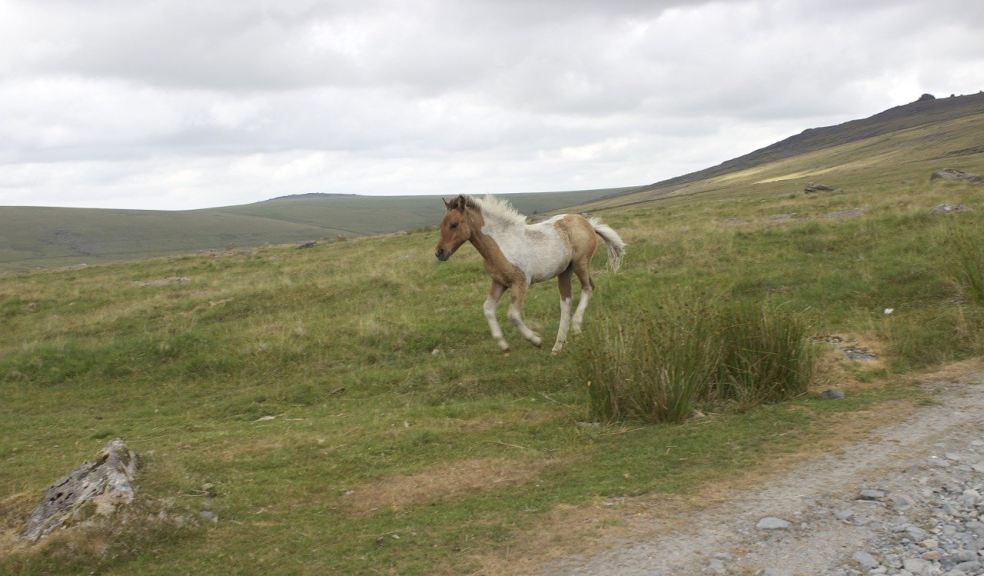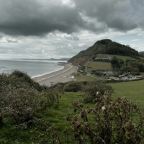
Highway Code changes to make roads safer for Dartmoor ponies
The British Horse Society (BHS) welcomes the new Highway Code changes, with tragic numbers of feral and semi-feral horses being killed on roads in Dartmoor every year.
There were 13 feral horse deaths reported to the equine charity in Dartmoor, with a total of 25 incidents including 12 feral horses injured. A further 36 feral horse deaths and 9 feral horse injuries were reported in the New Forest the same year.
The Highway Code now states that feral or semi-feral horses found in areas such as the New Forest, Exmoor and Dartmoor require the same consideration as ridden horses when being approached or passed.
The new advisory speed at which to pass a horse on the road has been reduced from 15mph to 10mph, and drivers must allow at least 2 metres (6.5 feet) of space.
The BHS believe the changes will help keep feral and semi-feral horses safer in Dartmoor, as well as all horses, riders, handlers and carriage drivers on roads across the UK.
The equine charity is delighted to see several positive changes being implemented for horses and equestrians, many of which were a direct result of the BHS’s significant involvement in the Highway Code review’s stakeholder group for vulnerable road users.
The BHS has worked hard over the last three years, lobbying and collaborating with Cycling UK, DVSA, Living Streets and the Department for Transport (DfT) to suggest the much-needed Highway Code improvements and to represent equestrians in the review.
One of the main changes is a new Hierarchy of Road Users, where horses are now alongside pedestrians and cyclists, as vulnerable road users. This new rule highlights that, irrespective of method of transport, those who can do the greatest harm have the greatest responsibility to reduce the danger or threat they may pose to others.
The advisory speed at which to pass people riding horses or driving horse-drawn vehicles has been reduced from 15mph to 10mph, and drivers must allow at least 2 metres (6.5 feet) of space. The BHS’s Dead Slow messaging will now be incorporated within the Highway Code, as well as a recommendation for horse riders to complete the BHS Ride Safe Award as a reference of best practise.
Alan Hiscox, Director of Safety at The British Horse Society (BHS) said: “We are thrilled that our hard work has paid off and these crucial changes to the Highway Code will be brought in. I am very pleased that the BHS was able to represent the equestrian community within the DfT’s Highway Code stakeholder group to ensure that all equestrians were included in the changes. They are a significant step forward for equestrian road safety and will help protect vulnerable road users, making the roads safer for everyone.”
While these changes are a step in the right direction to protect horses and riders, there is still much more to be done to prevent the hundreds of horse and rider injuries, and even horse fatalities, reported to the BHS each year. The BHS is committed to educating drivers and creating awareness about how to safely pass horses on the roads, through their Dead Slow campaign.
Dead Slow was launched to help better educate drivers on how to safely pass horses on the road. The campaign consists of four key behavioural change messages to drivers:
If I see a horse on the road then I will…
- Slow down to a maximum of 10mph
- Be patient – I will not sound my horn or rev my engine
- Pass the horse wide and slow, (if safe to do so) at least a car’s width if possible
- Drive slowly away
The charity is urging equestrians to report any incidents they experience on the roads using the Horse i app, which gathers data to help strengthen the BHS’s voice when implementing positive changes such as this one.
To find out more about BHS Dead Slow and the Horse i app, please visit: www.bhs.org.uk/dead-slow













